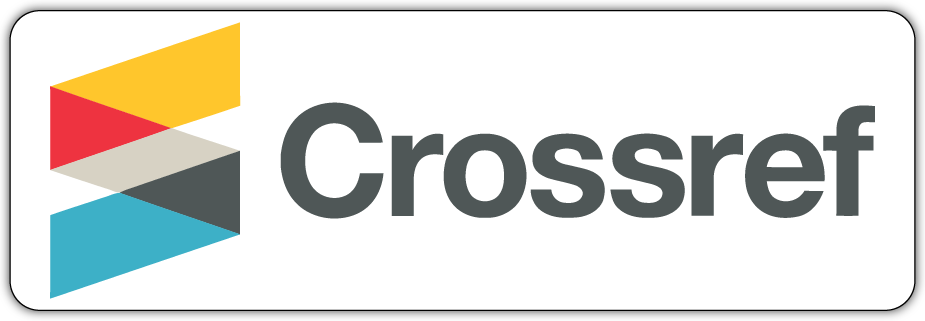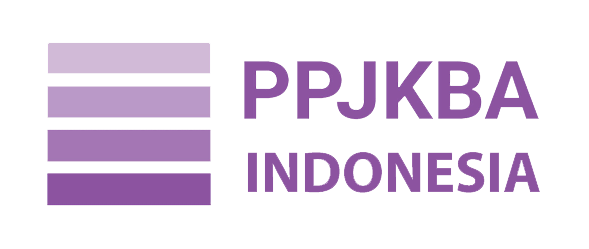UTILIZATION OF NETWORK-BASED LEARNING TECHNOLOGY BY MILLENNIAL GENERATION LECTURERS: A REVIEW OF ARABIC LANGUAGE LEARNING IN HIGHER EDUCATION
Abstract
It is a major topic among academics that the supporting factor for introducing technology to Generation Z in Arabic language learning is the lecturers, mostly filled by the Millennial generation. Therefore, this study aims to explore the utilization of network-based technology by millennial generation lecturers (a review of Arabic language learning in higher education). This research is based on post-positivistic paradigm with quasi-qualitative approach; the data collection methods are interviews, observation, and documentation. The research subjects were 29 millennial generation lecturers born between 1981 and 1996. The data analysis technique used the analysis Miles, Huberman, and Saldana. The results of this study are face-to-face direct feedback-based material delivery technology by millennial lecturers relying on Zoom and Google Meet. In contrast, non-face-to-face direct feedback-based material delivery technology, WhatsApp, and Telegram are still the main applications. As for the technology of providing material based on indirect feedback on the audio aspect, there is no visible use of certain platforms or applications on them; on the audio-visual aspect, millennial lecturers actively create video content on the YouTube platform, while on the text aspect, the use of WordPress, Blogger or special websites is a separate choice for some millennial lecturers. Evaluation technology: several platforms are the choice of millennial lecturers, including Google Form, Quizizz, Kahoot, Quizlet, and Wizer.me. As for special platforms designed for learning purposes, each lecturer still relies on e-learning provided by their respective education units. However, there is an e-learning that is the first choice of most millennial lecturers, namely Moodle.
Keywords
Full Text:
PDFReferences
Ali, Hasanuddin, and Lilik Purwandi. Indonesia 2020: The Urban Middle-Class Millenials. Alvara Research Center, 2016.
Aminullah, Muhammad Afiq, Fadilah Al Azmi, and Darul Jalal. “Pembelajaran Bahasa Arab Mandiri Melalui Platform Aplikasi Tiktok Sebagai Tren Belajar Masa Kini.” Al Mi’yar: Jurnal Ilmiah Pembelajaran Bahasa Arab Dan Kebahasaaraban 5 (2022).
Arum, Yuniar Tri Gesela. “Hipertensi Pada Penduduk Usia Produktif (15-64 Tahun).” HIGEIA (Journal of Public Health Research and Development) 3, no. 3 (2019): 345–56.
Berkup, Sezin Baysal. “Working with Generations X and Y in Generation Z Period: Management of Different Generations in Business Life.” Mediterranean Journal of Social Sciences 5, no. 19 (2014): 218.
Blackburn, Heidi. “Millennials and the Adoption of New Technologies in Libraries through the Diffusion of Innovations Process.” Library Hi Tech 29, no. 4 (2011): 663–77.
Carlson, Elwood, and Elwood Carlson. “The Lucky Few in Black and White.” The Lucky Few: Between the Greatest Generation and the Baby Boom, 2008, 137–64.
Effendi, Darwin, and Achmad Wahidy. “Pemanfaatan Teknologi Dalam Proses Pembelajaran Menuju Pembelajaran Abad 21.” In Prosiding Seminar Nasional Program Pascasarjana Universitas PGRI Palembang, 2019.
Febriani, Nufian S. “Preferensi Media Sosial Generasi Milenial Pada Tingkat Pengetahuan Calon Legislatif.” Nyimak: Journal of Communication 4, no. 1 (2020): 89–107.
Frey, William H. “Analysis of Census Bureau Population Estimates,” 2020.
Gunawan, Yosi Intan Pandini, and Asep Amaludin. “Pemanfaatan Teknologi Pembelajaran Dalam Jaringan Di Masa Pandemi Covid-19.” Madaniyah 11, no. 2 (2021): 133–50.
Hastini, Lasti Yossi, Rahmi Fahmi, and Hendra Lukito. “Apakah Pembelajaran Menggunakan Teknologi Dapat Meningkatkan Literasi Manusia Pada Generasi Z Di Indonesia?” Jurnal Manajemen Informatika (JAMIKA) 10, no. 1 (2020): 12–28.
Hidayat, Ahmad Fadhel Syakir, Miftahul Huda, Dian Risky Amalia, Aidillah Suja, and Siti Sulaikho. “The Integration of Character Education in Arabic Learning at Muhammadiyah Elementary School 4 Samarinda.” Borneo International Journal of Islamic Studies (BIJIS), 2022, 58–79.
Howe, Neil, and William Strauss. Millennials Rising: The next Great Generation. Vintage, 2000.
Husna, Lathifah Al, Ihda Filzafatin Habibah, and Ahmad Fadhel Syakir Hidayat. “تطوير مواد تعليم اللغة العربية على برنامج كانفا لتلاميذ الصف الثامن في المدرسة الثانوية الإسلامية.” Al-Jawhar: Journal of Arabic Language 1, no. 1 (2023): 14–29.
Iswanto, Rahmat. “Pembelajaran Bahasa Arab Dengan Pemanfaatan Teknologi.” Arabiyatuna: Jurnal Bahasa Arab 1, no. 2 Desember (2017): 139–52.
Lukum, Astin. “Pendidikan 4.0 Di Era Generasi Z: Tantangan Dan Solusinya.” In Prosiding Seminar Nasional Kimia Dan Pendidikan Kimia, 2:1–3, 2019.
Miles, Mattew. “B., Huberman, A., M., & Saldaña, J.(2014). Qualitative Data Analysis: A Methods Sourcebook.” Qualitative Data Analysis: A Methods Sourcebook, n.d.
Norkhafifah, Siti, and Nur Syahabuddin. “Desain Pembelajaran Bahasa Arab Berbasis Teknologi Informasi Di Era New Normal.” Al Mi’yar: Jurnal Ilmiah Pembelajaran Bahasa Arab Dan Kebahasaaraban 5 (2022).
Palfrey, John, and Urs Gasser. Born Digital: Understanding the First Generation of Digital Natives. ReadHowYouWant. com, 2011.
Purnomo, Agung, Nur Asitah, Elsa Rosyidah, Andre Septianto, Margi Dwi Daryanti, and Mega Firdaus. “Generasi Z Sebagai Generasi Wirausaha,” 2019.
Rahardjo, Mudjia. “Pengantar Metodologi Penelitian Studi Kasus Metode Campuran (Mixed Method), Penelitian Dan Pengembangan (R&D).” CV Mazda Media Publishing. Malang, 2020.
———. Tanya Jawab Metodologi Penelitian Sosial Kualitatif (Dari Positivistik Hingga Postkualitatif). Mojokerto: Giri Prapanca Loka, 2023.
Ratnaningsih, I Z, and A R Prasetyo. “Work-Life Balance Pada Generasi Y.” Dalam Asosiasi Psikologi Industri Dan Organisasi. Work-Life Balance Pada Generasi Y. Dalam Asosiasi Psikologi Industri Dan Organisasi, 2017, 208–16.
Salsabila, Unik Hanifah, W Mega Lestari, Riasatul Habibah, Oqy Andaresta, and Diah Yulianingsih. “Pemanfaatan Teknologi Media Pembelajaran Di Masa Pandemi Covid-19.” Trapsila: Jurnal Pendidikan Dasar 2, no. 2 (2020): 1–13.
Statistik, Badan Pusat, and Statistik Telekomunikasi Indonesi. “Badan Pusat Statistik 2020.” Jakarta: BPS RI, 2020.
Sulaikho, S, M Huda, and A F S Hidayat. “Konstruksi Institution Culture Dalam Integrasi IMTAQ Dan IPTEK Pada Siswa Madrasah Muallimin Muallimat.” … , Jurnal Pendidikan Dan …, 2023. http://www.jurnal.faiunwir.ac.id/index.php/Jurnal_Risalah/article/view/405.
Sutikno, Achmad Nur. “Bonus Demografi Di Indonesia.” VISIONER: Jurnal Pemerintahan Daerah Di Indonesia 12, no. 2 (2020): 421–39.
Taufik, Taufik, Ahmad Rifki, Dina Faiqotul Ilmiyah, Charity Dinda Aghnia, Achmad Yani, and Murwanti Murwanti. “Pengembangan Media Pembelajaran MahᾹrah QirᾹ’ah Dengan Menggunakan Book Creator.” Al Mi’yar: Jurnal Ilmiah Pembelajaran Bahasa Arab Dan Kebahasaaraban 6, no. 2 (2023): 569–84.
Widiastuti, Ni Made Dian, and I Putu Arya Dharmaadi. “Klasifikasi Teknologi Dalam Jaringan Untuk Mendukung Proses Pembelajaran Di Era Merdeka Belajar.” Jurnal Pendidikan Teknologi Dan Kejuruan 18, no. 2 (2021): 195–205.
Yakob, Ramzi. “Grown up Digital: How the Net Generation Is Changing Your World.” Taylor & Francis, 2009.
Yasmar, Renti, Aidillah Suja, and Ahmad Fadhel Syakir Hidayat. “Pemanfaatan ChatGPT Dalam Meningkatkan Keterampilan Menulis/Maharah Kitabah Berbasis 6C (Critical Thinking, Creativity, Collaboration, Communication, Computational and Compassion).” Al-Jawhar: Journal of Arabic Language 1, no. 2 (2023): 87–104.
Yusuf, Eddy. “Pembelajaran Berbasis Teknologi Untuk Generasi Z.” Widyakala Journal: Journal Of Pembangunan Jaya University 3 (2016): 44–48.
DOI: http://dx.doi.org/10.35931/am.v7i1.3281
Refbacks
- There are currently no refbacks.
Copyright (c) 2024 Al Mi'yar: Jurnal Ilmiah Pembelajaran Bahasa Arab dan Kebahasaaraban

This work is licensed under a Creative Commons Attribution-ShareAlike 4.0 International License.
Al Mi'yar: Jurnal Ilmiah Pembelajaran Bahasa Arab dan Kebahasaaraban
Index by:
![]()
![]()
![]()
![]()
![]()
![]()
![]()
![]()
![]()
![]()

Publish by:
Program Studi Pendidikan Bahasa ArabSekolah Tinggi Ilmu Al-Qur'an AmuntaiContact us:
Address: Jl. Rakha Pakapuran, Amuntai Utara
Kabupaten : Hulu Sungai Utara
Kode Pos : 71471
Provinsi : Kalimantan Selatan
Email: jurnal.almiyar@gmail.com

Ciptaan disebarluaskan di bawah Lisensi Creative Commons Atribusi-BerbagiSerupa 4.0 Internasional.
___________________________________________________________________________________________________________________________________________________________________
Ciptaan disebarluaskan di bawah Lisensi Creative Commons Atribusi-BerbagiSerupa 4.0 Internasional.

 slot88
slot88








